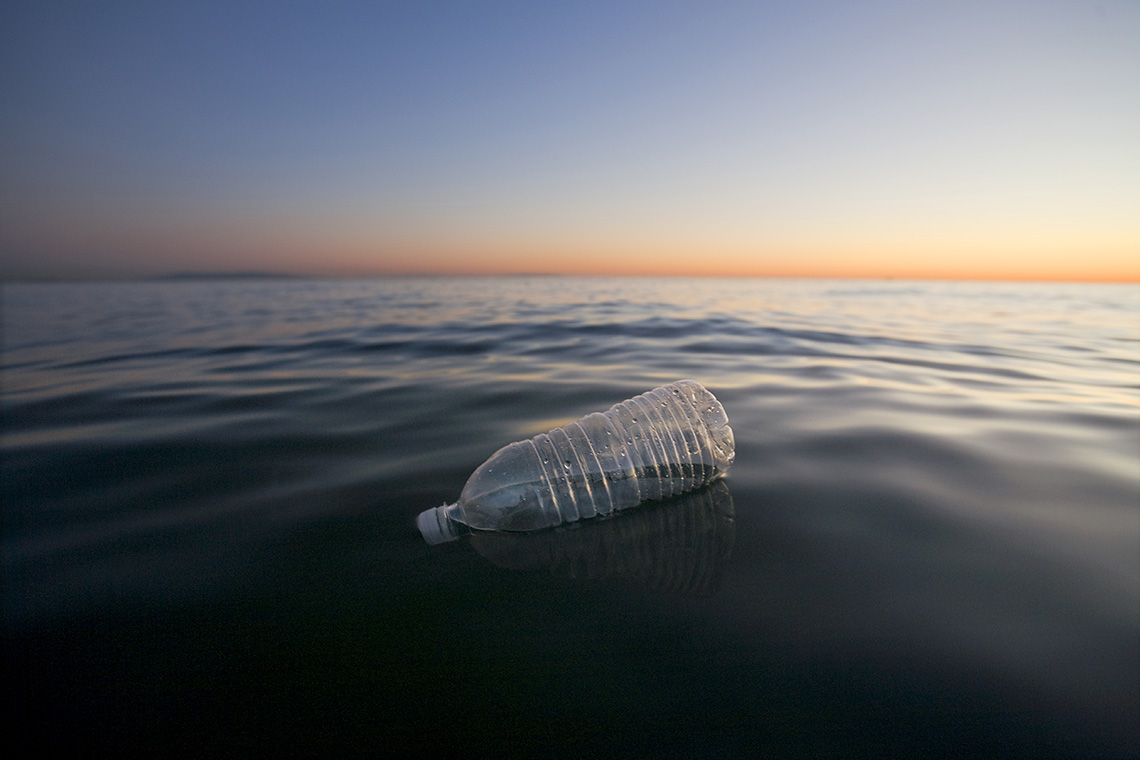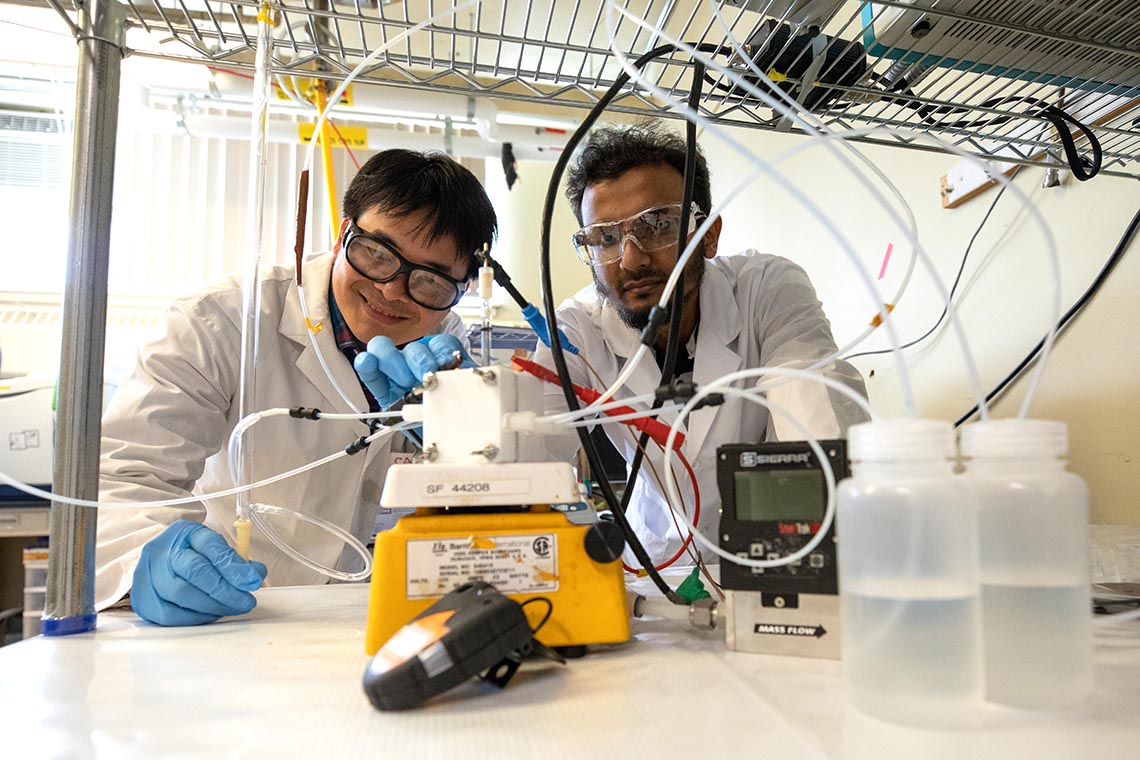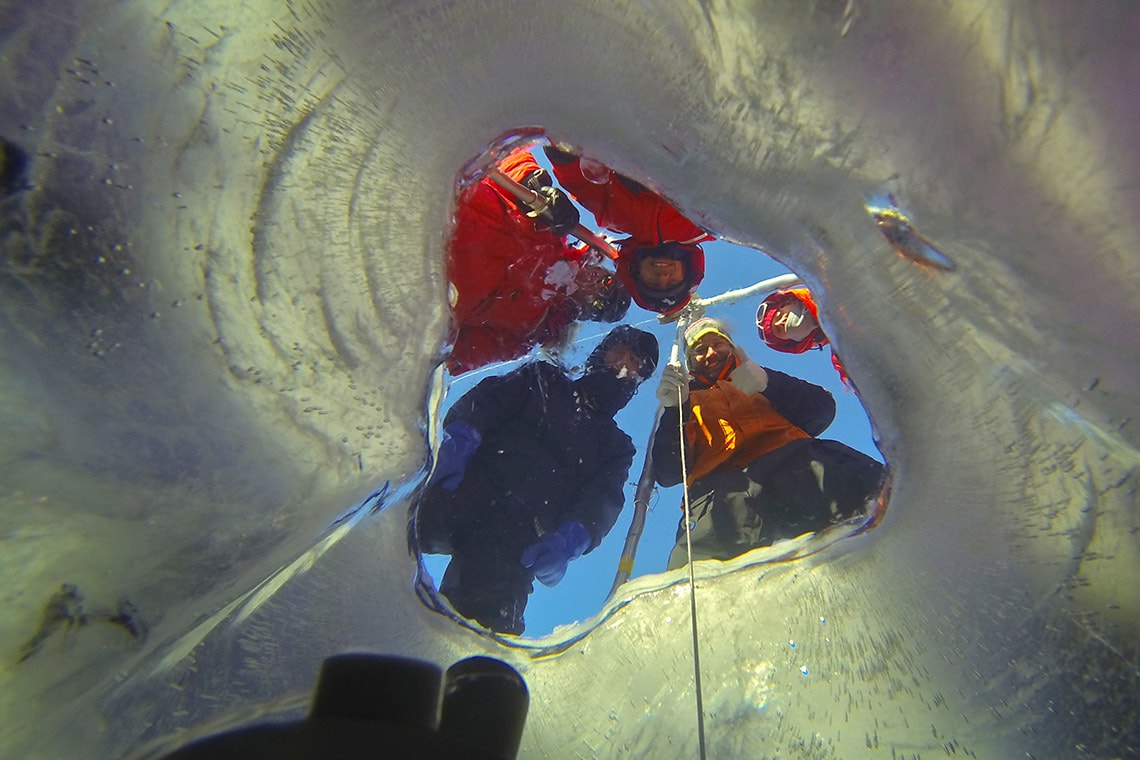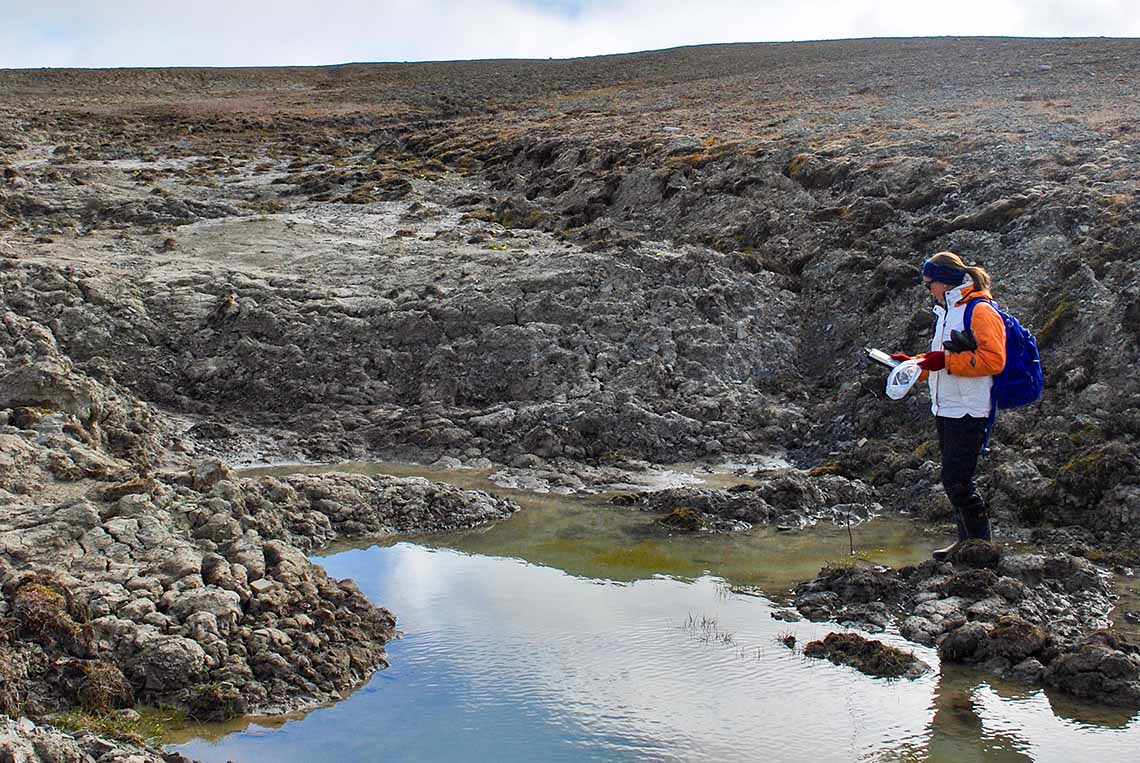Tag: environment

Plastic not just a problem in our oceans, also affecting the Great Lakes: U of T research
Chelsea Rochman, assistant professor of ecology and evolutionary biology at the University of Toronto, says we should be paying close attention to what’s taking place closer to home in the Great Lakes.
“The contamination in the Great Lakes and other bodies of freshwater from plastics and microplastics is ubiquitous,” says Rochman, who looks at plastic debris and its associated chemical contaminants.

New catalyst developed at U of T upgrades greenhouse gas into renewable hydrocarbons
A new technology from the University of Toronto’s Faculty of Applied Science & Engineering is taking a substantial step towards enabling manufacturers to create plastics out of two key ingredients: sunshine and pollution.

World’s largest high Arctic lake shows startling new evidence of climate change
Remote areas in Canada’s Arctic region – once thought to be beyond the reach of human impact – are responding rapidly to warming global temperatures, the University of Toronto’s Igor Lehnherrhas found.
His research, published in Nature Communications, is the first to aggregate and analyze massive data sets on Lake Hazen, the world’s largest lake by volume located north of the Arctic Circle.

Environment more important to respiratory health than genetics: U of T researcher
A University of Toronto researcher has found strong evidence that environmental exposures, including air pollution, affect gene expressions associated with respiratory diseases much more than genetic ancestry.
Senior author Philip Awadalla, a professor in the department of molecular genetics, analyzed more than 1.6 million data points from biological specimens, health questionnaires and environmental data sets. His study is one of the largest ever to examine the relationship between gene expression and environmental stimuli.

U of T research finds ponds in High Arctic could be significant source of carbon emissions
A new Canadian study involving researchers from the University of Toronto has found that carbon released by some ponds in the High Arctic could potentially be a hidden source of greenhouse gas emissions.
The study looked at how dissolved organic carbon (DOC) stored in Arctic permafrost – which is thawing at an accelerated rate due to climate change – is being released into Arctic watersheds as a result of physical disturbances that relocate nutrients across the landscape. For the first time, researchers were able to determine that the chemical composition of carbon in these ponds is vastly different than in rivers in the High Arctic.
